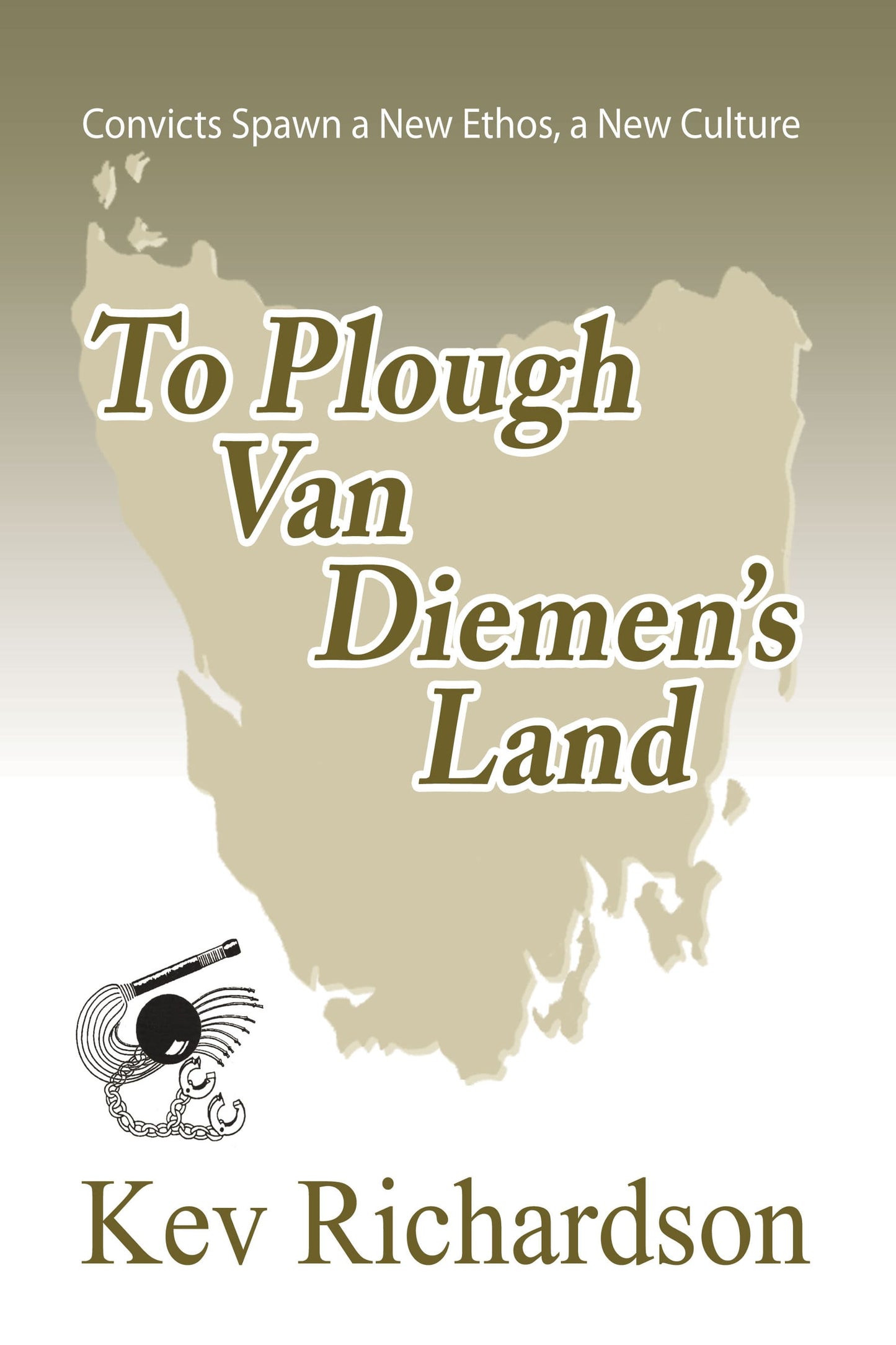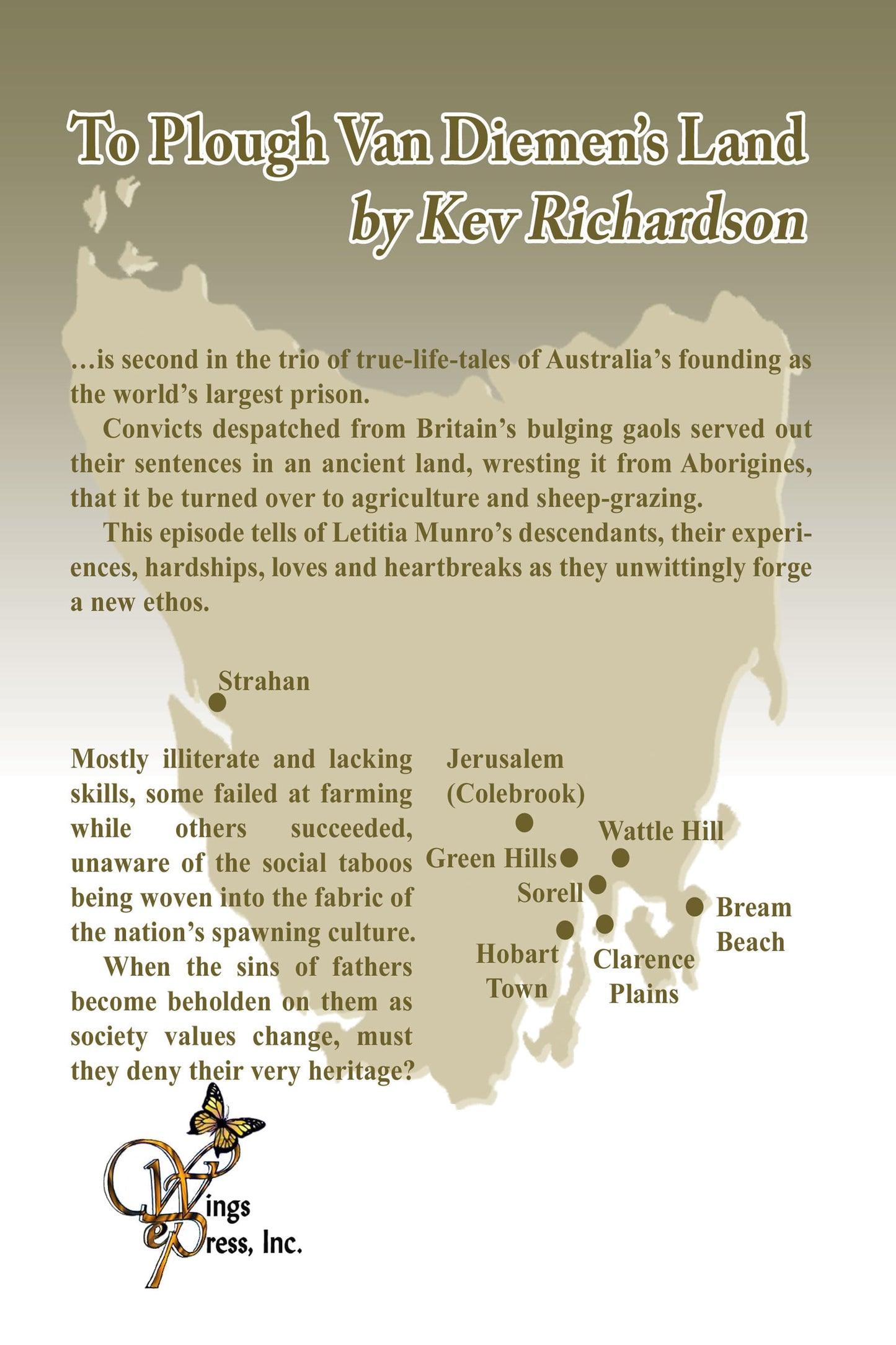Wings epress, Inc.
Share
By Kev Richardson
Letita Munro Series Book 2
Convicts despatched from Britain’s bulging gaols served out their sentences in an ancient land, wresting it from Aborigines, that it be turned over to agriculture and sheep grazing.
This episode tells of Letitia Munro’s descendants, their experiences, hardships, loves and heartbreaks as they unwittingly forge a new ethos.
Mostly illiterate and lacking skills, some failed at farming while others succeeded, unaware of the social taboos being woven into the fabric of the nation’s spawning culture.
When the sins of fathers become beholden on them as society values change, must they deny their very heritage?
What They Are Saying About To Plow Van Dieman’s Land
Acclaimed historical writer Kev Richardson, continues his personal introduction to Australia’s famed Letitia Munro, her eleven children, and their extensive families during their convict beginnings in Van Diemen’s Land. In her strength and foresight Titia wondered, “Does it really matter that we all came as convict stock?” ... but to some of them, it did.
Kev Richardson has a way of introducing the reader to each of Letitia Munro’s family members, making the history in the late 1700s and early 1800s come alive.
Eventually the names of England’s uncompromising penal colonies in “New South Wales”... and “Van Diemen’s Land” were changed in an effort to hide the social guilt of inhumane suffering, starvation, deliberate brutalities, and unpardonable cruelties dealt against the prisoners, whose misdeeds were often only ‘crimes of desperation,’ simply to survive the hard times. However, it was these beginning years that established the convicts’ loyal code against their captors, formulating the heritage of ‘bonded relationships’ of today’s population.
Men were paired with eleven- and twelve-year-old girls, to populate this new land under devastating conditions, often being uprooted and moved to new locations when England was at war with the French. Because owning property became a step toward respectability, many convicts became docile in order to receive these granted farm lands. Even then, they fought to make ends meet. They struggled to grow crops, and raise stock... hogs and sheep, while surviving draught, range fires, taxes, bigotry, and illiteracy.
Still others were continually in trouble with the law because they couldn’t give up their scallywag ways. Adam Newitt, a cobbler by trade, was such a man. So, throughout the years, each generation faced its own hardships, yet was determined to be known as trustworthy and respectable.
I highly recommend Kev Richardson’s historical tales. He brings history to life.
JoEllen Conger
Conger Book Reviews, USA






